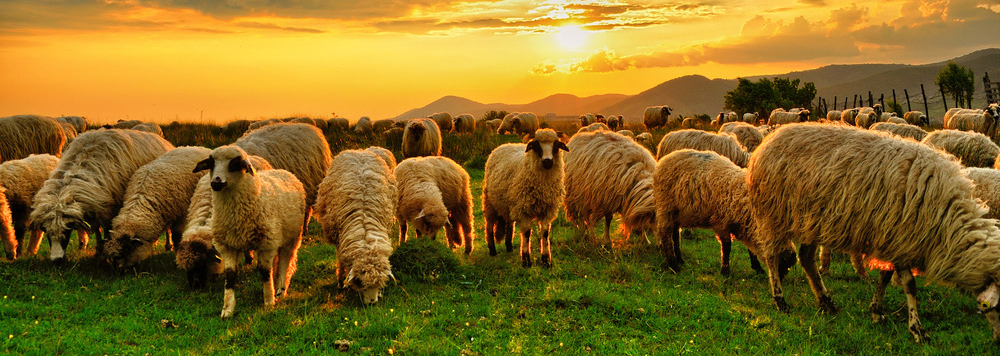I think almost everyone looks upon 2020 as a disaster. But while most Christians agree, we have a different perspective. We believe in a sovereign God who ultimately controls all things. Therefore, we view times of undeniable woe as “wilderness experiences,” thinking back to Israel’s desert journey to the good land God promised them. It was a journey which could have taken months, but God decreed would take forty long years so as to prepare sinful Israel for life as God’s holy people. As a journey between the Passover and entrance into their inheritance, it in some ways paralleled the church’s journey between the cross and Christ’s return. With so many advantages in America, we tend to forget that. 2020 has been a reminder that we are not home yet.
It would do us good to remember an Old Testament passage which summarizes God’s intent in keeping Israel in the wilderness for a lifetime. Here are excerpts from Deuteronomy 8. I’ll keep my comments brief.
And you shall remember the whole way that the LORD your God has led you these forty years in the wilderness, that he might humble you, testing you to know what was in your heart, whether you would keep his commandments or not. And he humbled you and let you hunger and fed you with manna, which you did not know, nor did your fathers know, that he might make you know that man does not live by bread alone, but man lives by every word that comes from the mouth of the LORD.
vv. 2-3
For God’s people, the value of wilderness experience is how it humbles us. The term means to be afflicted. Affliction reveals who we are under the surface, and also who we can be. God lets us hunger and then feeds us, highlighting how everything good has a source. The wilderness teaches that we need the Lord more than any comfort, and we can have God, himself, if we want him.
Your clothing did not wear out on you and your foot did not swell these forty years. Know then in your heart that, as a man disciplines his son, the LORD your God disciplines you.
vv. 4-5
Affliction is a learning experience no one would voluntarily choose. In God’s hands, it is a kind of discipline, an unpleasant but necessary training exercise. The wilderness takes us beyond what we can naturally endure, to connect us with the source of our strength.
“Take care lest you forget the LORD your God by not keeping his commandments and his rules and his statutes, which I command you today, lest, when you have eaten and are full and have built good houses and live in them, and when your herds and flocks multiply and your silver and gold is multiplied and all that you have is multiplied, then your heart be lifted up, and you forget the LORD your God, who brought you out of the land of Egypt, out of the house of slavery, who led you through the great and terrifying wilderness, with its fiery serpents and scorpions and thirsty ground where there was no water, who brought you water out of the flinty rock, who fed you in the wilderness with manna that your fathers did not know, that he might humble you and test you, to do you good in the end.
vv. 11-16
It is our tendency to lose track of God when we are self-satisfied. Affliction accumulates vivid personal memories of God’s provision and love. The wilderness frees us to enjoy God’s blessings without letting them blind us to God, himself.
What am I learning from 2020?
- Enjoy God when there is little else to enjoy.
- Find the strength I need in the Lord.
- Enjoy his blessings without losing sight of him.
I hope 2021 will be an oasis, though I know the wilderness itself will continue until I reach my promised inheritance. But I am not alone—never alone—and I expect to grow more and more deeply joyful knowing that nothing can separate me from the love of God in Christ Jesus.


Highly recommend reading Moses Choice, by Jeremiah Burroughs. All about that time in the wilderness and how God uses affliction in the lives of His people. The book is on sale at Reformation Heritage Books.
Thanks for the recommendation, Wayne.